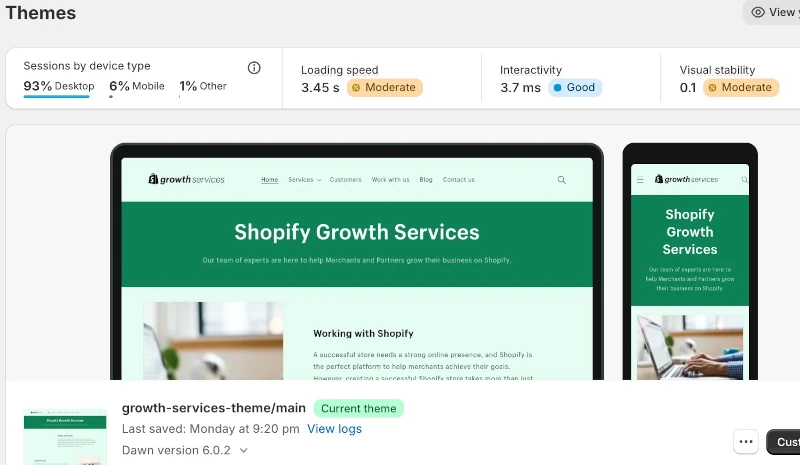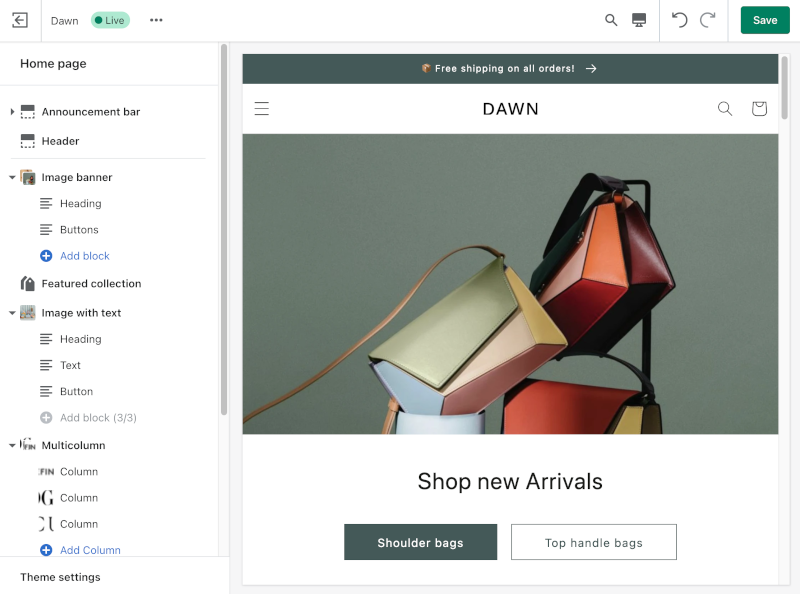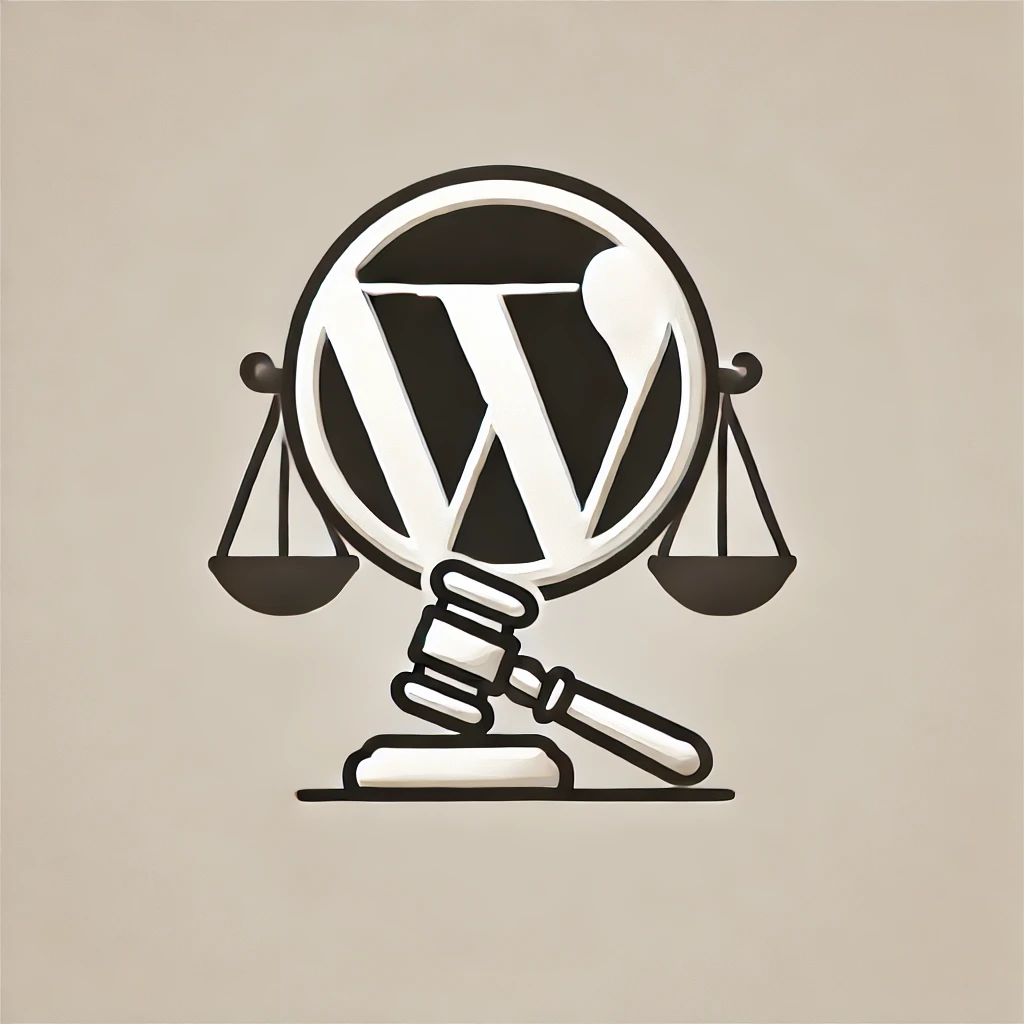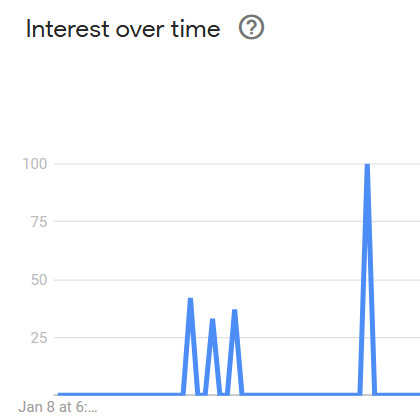
Shopify

Shopify is a leading e-commerce platform designed to build online stores, offering a wide array of features, apps, and tools tailored for selling products. It’s suitable for businesses of all sizes, with a user-friendly interface and a large app ecosystem. However, Shopify can become costly, particularly when factoring in third-party apps and transaction fees. While it provides powerful e-commerce tools, its design customization options are limited. Like many other platforms, Shopify doesn’t allow for web hosting portability, meaning you’re locked into its infrastructure. Overall, Shopify excels in e-commerce functionality but offers less flexibility when it comes to website design.

Who should use Shopify?
Shopify is ideal for:
- E-commerce Businesses: Companies focused on selling products online, with access to a wide range of robust tools.
- Growing Businesses: Businesses that need a scalable platform to accommodate increasing sales volume.
- Dedicated E-commerce Users: Those seeking an all-in-one solution with specific e-commerce functionality and tools.
Shopify is an excellent choice for building online stores, offering powerful e-commerce features and strong support. However, it may not be the best fit for users who require flexibility in design or more control over website customization.

Shopify Features
Shopify offers a broad range of e-commerce-focused features and apps designed to streamline the process of selling online:
E-commerce Functionality:
- Product Management: Easily manage products, variants, and inventory.
- Order Management: Track orders and manage fulfillment with ease.
- Payment Processing: Accept payments through multiple secure payment gateways.
- Shopping Cart: A secure, customizable shopping cart with various purchase options.
Customization:
- Theme Customization: Choose from a variety of free and paid themes to fit your brand.
- App Store: Enhance your store’s functionality with a wide selection of third-party apps.
- Liquid Templates: Developers can use Liquid, Shopify’s templating language, for deeper customization.
- Custom Code: Add your own HTML, CSS, or JavaScript for advanced customization.
Marketing and Sales:
- SEO Tools: Built-in tools to help optimize your store for search engines.
- Discount Codes: Create sales, promotions, and discount offers.
- Email Marketing: Integrate with email platforms to launch marketing campaigns.
- Analytics: Access detailed sales reports to optimize business performance.
Advanced Features:
- Multi-Channel Selling: Sell on social media platforms and marketplaces such as Amazon and eBay.
- Customer Management: Manage customer information and track buying behavior.
- Abandoned Cart Recovery: Automatically remind customers about items left in their cart.
Development Tools:
- Shopify API: Leverage the Shopify API for advanced store customization and integration with other tools.
💵 Pricing
Shopify offers several pricing plans, with the option to pay either monthly or yearly:
Basic Shopify:
- $39/month (when billed monthly)
- $348/year (equivalent to $29/month when billed annually)
- Includes essential e-commerce features
- Transaction fee: 2.9% + 30¢ per online credit card transaction
Shopify:
- $105/month (when billed monthly)
- $948/year (equivalent to $79/month when billed annually)
- Includes additional features and advanced reporting
- Transaction fee: 2.6% + 30¢ per online credit card transaction
Advanced Shopify:
- $399/month (when billed monthly)
- $3,588/year (equivalent to $299/month when billed annually)
- Includes advanced reporting and premium features
- Transaction fee: 2.4% + 30¢ per online credit card transaction
Shopify Plus:
- Custom pricing for enterprise-level clients with advanced needs.
Additional Costs:
- Additional expenses may arise from third-party apps, premium themes, and transaction fees.
👍Pros of Shopify
E-commerce Focused:
- Built with e-commerce in mind, offering robust tools for online selling.
- Provides numerous features designed specifically to optimize sales and streamline store management.
Scalability:
- Easily scales as your business grows, making it suitable for both small startups and large enterprises.
- Handles increasing sales volume and expanding product catalogs effortlessly.
Large App Ecosystem:
- Access to a vast app store with a wide range of third-party tools and integrations.
- Offers flexibility to enhance your store's functionality with additional apps.
Support:
- Comprehensive support options, including 24/7 customer service and a robust developer community.
- Access to various resources, such as documentation, forums, and live chat support.
Payment Processing:
- Integrates seamlessly with multiple payment gateways, including Shopify Payments for lower fees.
- Shopify's built-in payment system reduces transaction costs and simplifies payment processing.
👎Cons of Shopify
Transaction Fees:
- Charges transaction fees on most plans unless you use Shopify Payments.
- Additional costs can add up if using third-party payment gateways.
Limited Design Customization:
- Offers less flexibility in design compared to other website builders.
- May require technical skills (e.g., coding) for advanced customization.
Site Lock-In:
- Moving your store to another platform requires rebuilding it from scratch.
- Shopify's platform lock-in can be a major barrier for those wanting portability.
Costly:
- The base plans are reasonable, but third-party apps, themes, and transaction fees can make it expensive.
- Costs can add up quickly, especially for businesses with multiple integrations.
Less Flexible:
- Shopify is tailored for e-commerce, but it lacks the flexibility of non-e-commerce website builders, making it less ideal for multi-purpose websites.
Limited Scalability for Very Complex Websites:
- While highly scalable for most e-commerce businesses, Shopify may not be the best choice for exceptionally large or complex websites that require highly customized features or infrastructure.
→ Conclusion
Shopify is an excellent choice for businesses that need a powerful, scalable e-commerce platform. It provides comprehensive tools for managing products, processing payments, and handling sales, along with strong customer support. However, be aware that additional costs may arise from third-party apps, themes, and transaction fees. The platform also offers limited design flexibility and can feel restrictive for those seeking full control or portability. Shopify is ideal if your focus is on selling online, but if maximum customization or flexibility is a priority, you may want to consider alternative platforms like UltimateWB.
🔑Key Takeaways:
- E-commerce Focused: Specifically built for creating and managing online stores.
- Scalable: Supports businesses of all sizes, from small startups to large enterprises.
- App Ecosystem: A large app store offers third-party integrations to extend functionality.
- Payment Processing: Multiple payment gateway options, including Shopify Payments for lower fees.
- Support: Access to various support options, including 24/7 customer service and a developer community.
- Transaction Fees: Charges transaction fees on most plans unless Shopify Payments is used.
- Site Lock-In: You are tied to Shopify's platform and must rebuild if you switch providers.
- Less Design Flexibility: Limited customization options compared to other website builders.
- Can Be Costly: Additional costs for apps, themes, and transaction fees can add up quickly.
- Limited Scalability for Very Complex Websites: While scalable, Shopify may not be the best choice for extremely large or complex websites.
Recommendation:
Shopify is an excellent choice for businesses that require a scalable, feature-rich e-commerce platform. If your primary focus is on e-commerce and you're comfortable with the associated costs, Shopify is ideal. However, if you need maximum design flexibility, lower costs, or portability, you may want to explore other options. That said, if your goal is to sell online and you can work within its limitations, Shopify remains a strong and reliable option.


 Add Comment
Add Comment



Good features, but no web hosting choice and high prices/transaction fees.